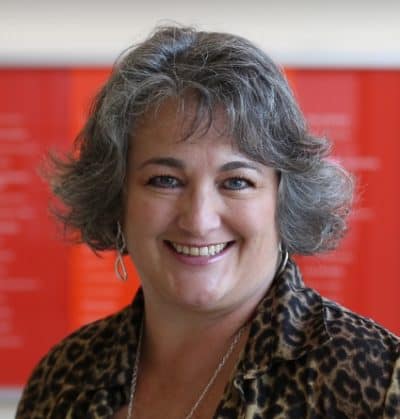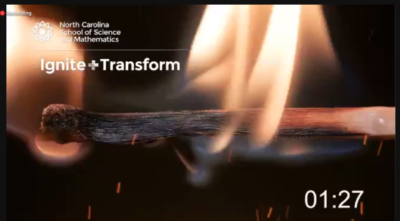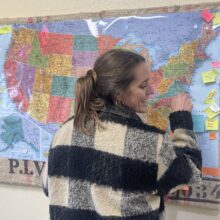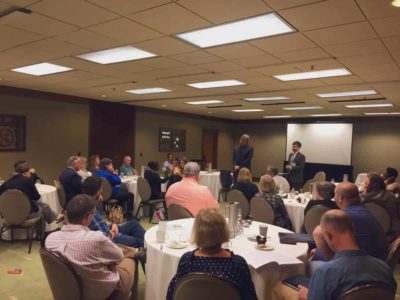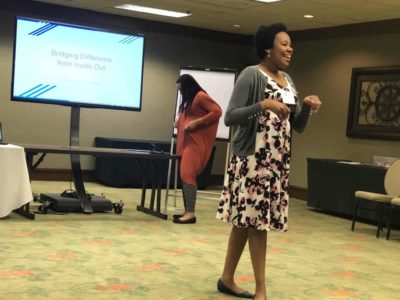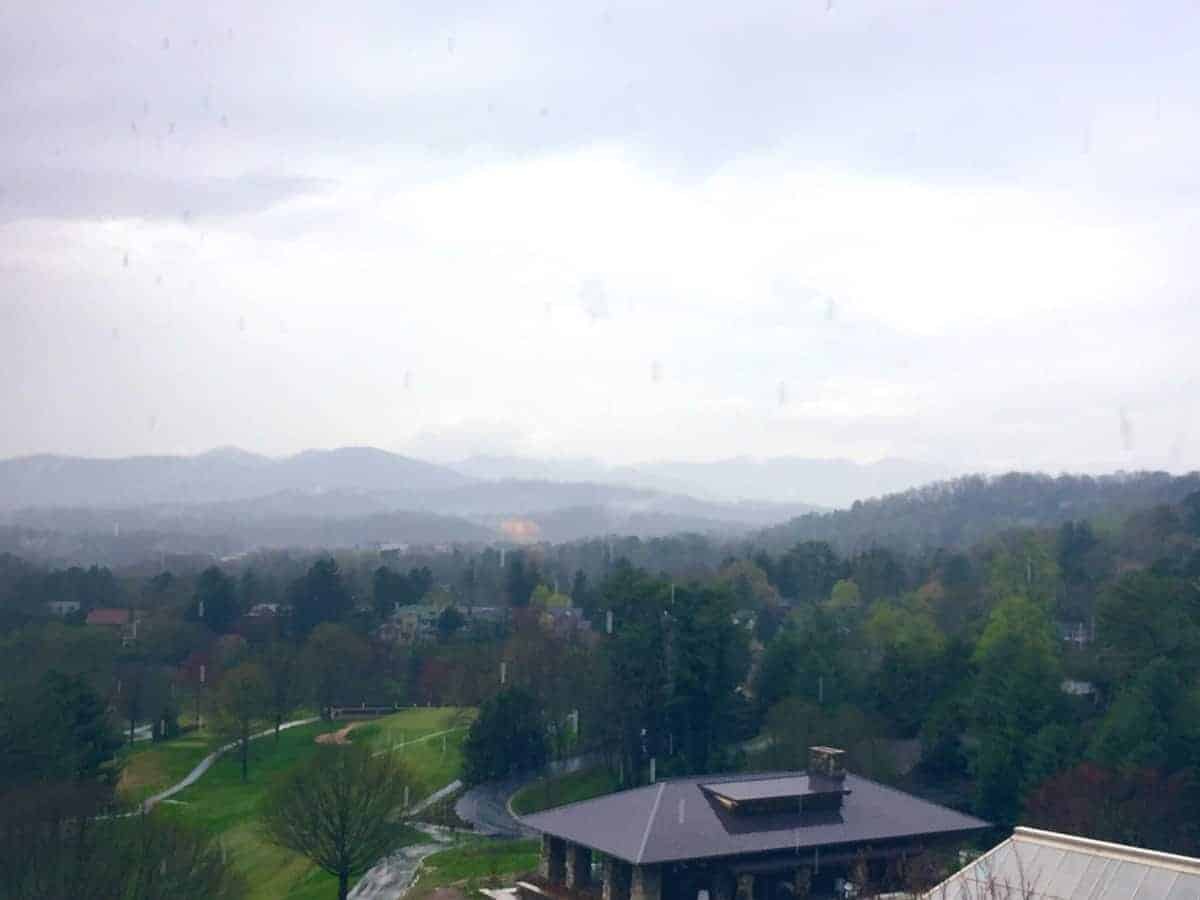
“What does it mean to be human,
and how will we be connected?”
asked Krista Tippett, founder of the On Being Project, to the crowd at The Duke Endowment's Continuing the Conversation: Embracing the Power of Welcome gathering last week. Tippett is a journalist who received a Master of Divinity from Yale University and has made a career out of talking about civil conversations.
“The point of speaking together differently is living together differently,” she said. “The point of listening is to bring our lives into conversation, which is the original meaning of the word conversation; to live among, be familiar with, keep company.”
During a rainy three days in western North Carolina, members, lay leaders, and pastors of the United Methodist Church came together, listening to each other and hearing from experts, through experience or trade, on the real work it takes to begin civil conversations. Tippett kicked off the gathering by reminding attendees about the need for human connection. She believes that our “superpower is cooperation,” and through her plenary, she set the foundation for discussion not just on the power of welcome, but also the importance of hospitality in our relationships.
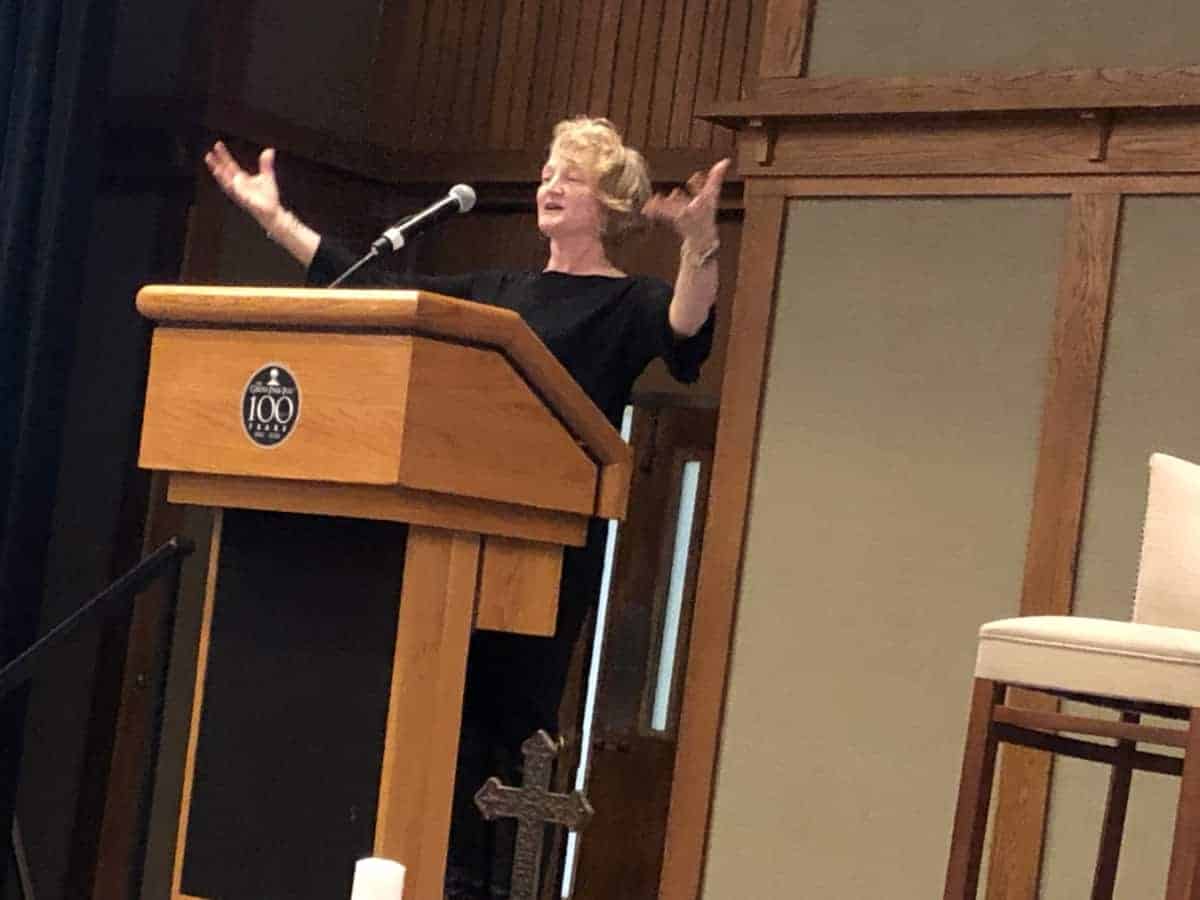
What does hospitality have to do with conversation and welcome?
“Hospitality is more than simply extending an invitation,” Tippett said. “Deep hospitality creates an inviting, trustworthy space, an atmosphere as much as the place, in which the ground for something new can be laid.”
Pointing out that, in our current climate, it seems people are more interested in winning a debate than listening to each other, Tippett continued: “So hospitality … another way to think about this is a reset of conditions. It creates an opening to let down our guards to surprise one another. And if we’re in luck, we surprise ourselves, too.”
Deep hospitality creates the possibility for something new, says @kristatippett. Our superpower, she says, is cooperation, the genius of our species. Let your guard down, surprise another, surprise yourself. Listen, be present. Seek to understand the humanity behind the words. pic.twitter.com/8jtO7aPd0I
— Mebane Rash (@Mebane_Rash) April 8, 2019
The On Being Project focuses on grounding virtues, six “spiritual technologies and tools through the art of living.” These include adventurous civility, hospitality, generous listening, patience, humility, and words that matter.
What is the space between ground rules and grounding virtues? @kristatippett @onbeing @DukeEndowment #2019ruralconvocation pic.twitter.com/P95Kjq5Khl
— EdNC_Rural (@EdNC_Rural) April 8, 2019
The crowd put these virtues to the test as the floor opened the following day for people to speak about the special session of the General Conference of The United Methodist Church, which took place in late February. The Church is in a transition period — in a tender moment of change — and pastors leaned into this brave space by sharing thoughts, opinions, and personal journeys.
Our Rural Church director Robb Webb asks: “How can we think of civility not as a program, but as a way of life?” #civilconversations pic.twitter.com/6xTb49OZ5u
— The Duke Endowment (@DukeEndowment) April 9, 2019
The gathering was a continuation of last August’s conference of the same name, where attendees joined together in Myrtle Beach to discuss what it means to dig deep into other peoples’ stories, listen actively, and create brave spaces. In attendance again was Jen Bailey of The People’s Supper, who led breakout sessions entitled “Bridging Differences from Inside Out” and “Brave Space and Conversations on Human Sexuality.” David Blankenhorn, president of the organization Better Angels, hosted a discussion on respectful listening and how to do so in our polarizing political climate.
Blankenhorn’s simple hope is to show how people can come together even when on opposing sides of the issues. He says in this time, “compromise has become a dirty word,” which means not to sacrifice for a solution, but to give up because of carelessness. Better Angels gets together “blues” and “reds” for mediated conversations to ultimately help people feel “we are less divided than we have been told.”
.@BetterAngelsUSA seeks respectful listening of each other, to look beyond stereotypes, and for both parties to see value in what the other says. We find they “rarely change their minds about issues, but they have changed their minds about others.” @DukeEndowment @blankenhorn3 pic.twitter.com/ViXq5z324l
— EdNC_Rural (@EdNC_Rural) April 9, 2019
On the final day of the conference, Tru Pettigrew and Tony Godwin of Cary delivered the plenary on how they created civil conversation in the real world. Pettigrew is a citizen of Cary, and Godwin is a retired police chief. Together, they meet the first Monday of every month at a barber shop in town with the community and members of the police force to have courageous conversations. These meetings help everyone move together collectively in a time of national racial unrest, giving participants the power to be stakeholders in their own city.
Building bridges of trust, empathy, love with @truaccess: seek to understand before seeking to be understood, listen to understand v. listen to reply, meet people where they are. @DukeEndowment’s Embracing the Power of Welcome. pic.twitter.com/V5xoREssnX
— Mebane Rash (@Mebane_Rash) April 10, 2019
Pettigrew believes in moving from “empowerment to empathy” and knows that developing relationships is essential in building bridges. What has happened in Cary has gone beyond resolution and moved towards reconciliation in a time where people who don’t look like each other may have preconceived notions of what the other feels and thinks.
Pettigrew said: “We suffer more in imagination than in reality.”
Editor’s note: The Duke Endowment supports the work of EducationNC.
Recommended reading
